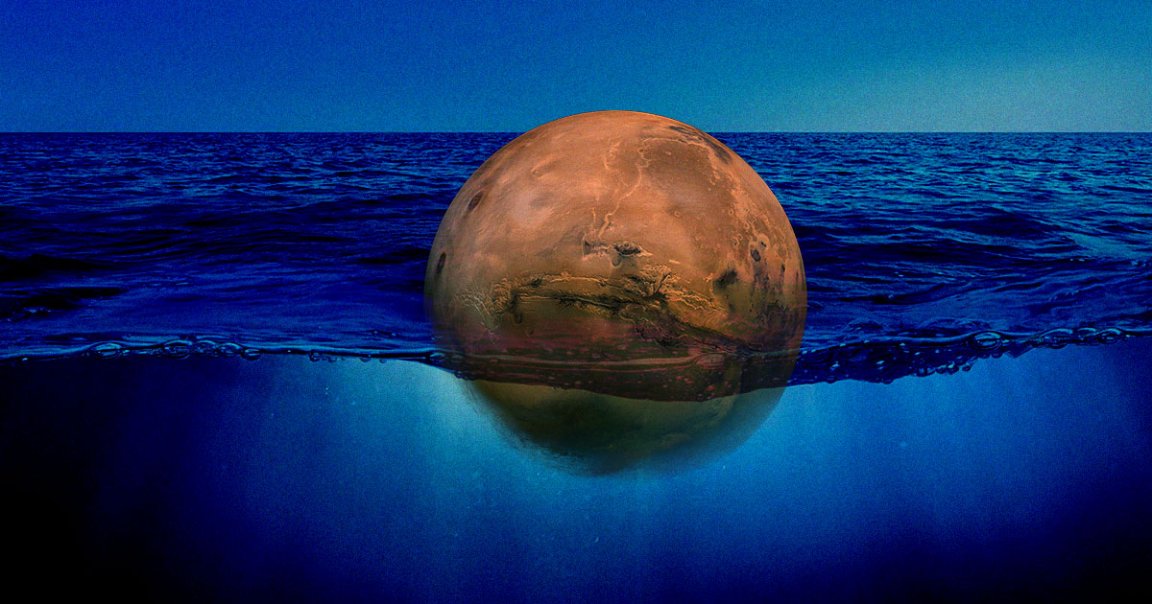
Martian Whirlpools
Despite being a planet away, Mars may be triggering “giant whirlpools” in the Earth’s oceans.
As detailed in a new paper published in the journal Nature Communications, researchers analyzed samples from deep-sea drill sites to study deep ocean currents.
They discovered “2.4 million-year climate cycles” that are “linked to cycles in the interactions of Mars and Earth orbiting the Sun,” as lead author and University of Sydney sedimentologist Adriana Dutkiewicz explained in a statement.
Sure, the findings are just plain cool. But they could have important implications for our understanding of the Atlantic meridional overturning circulation (AMOC), an ocean current that maintains temperate climates in Europe — that’s on the verge of collapse due to climate change.
Grand Cycles
These “astronomical grand cycles” would be the result of the orbits of both Mars and Earth interacting. However, proving these cycles by analyzing the Earth’s geology has proven difficult.
In their study, Dutkiewicz and her colleagues pored over more than 50 years of scientific drilling data. They found that deep-sea currents shift in strength every 2.4 million years. At their peak, they can generate deep sea “eddies,” or powerful whirlpools that can reach the seafloor and move large amounts of sediment.
“The gravity fields of the planets in the solar system interfere with each other and this interaction, called a resonance, changes planetary eccentricity, a measure of how close to circular their orbits are,” explained coauthor and University of Sydney professor Dietmar Müller in the statement.
The Earth receives more solar radiation and a resulting warmer climate at the peak of this cycle, the scientists suggest. These high temperatures, they found, are correlated with more breaks in the deep-sea record, indicating stronger deep ocean currents.
That means if the AMOC were to collapse, as some scientists predict, this cycle could mitigate at least some of the fallout, which would include a prolonged period of extreme cold in Europe and North America.
“We know there are at least two separate mechanisms that contribute to the vigor of deep-water mixing in the oceans,” Müller explained. “AMOC is one of them, but deep ocean eddies seem to play an important role in warm climates for keeping the ocean ventilated.”
“Our deep-sea data spanning 65 million years suggest that warmer oceans have more vigorous deep circulation,” Dutkiewicz added. “This will potentially keep the ocean from becoming stagnant even if [AMOC] slows or stops altogether.”
More on the AMOC: Scientists Say the Atlantic Current Appears to Be on the Verge of Collapse